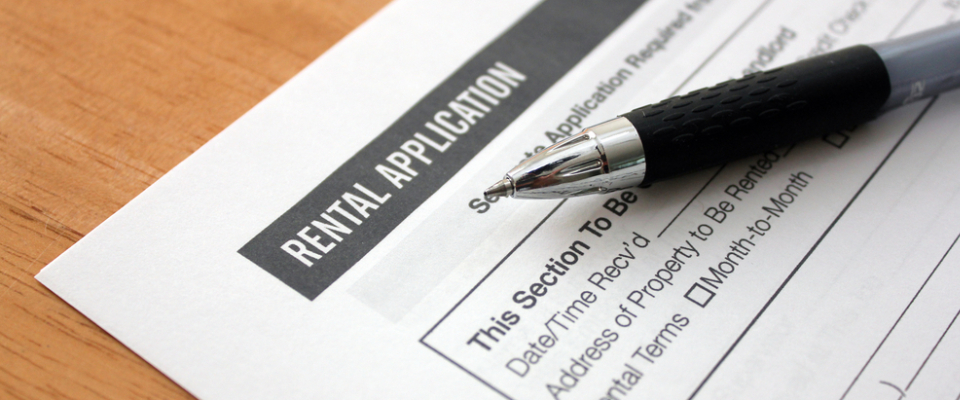Share this article:
Searching for apartments can feel like a fun adventure at first. But in today’s highly competitive rental markets, renters don’t have the luxury of taking too much time when they find a unit that fits their needs.
With a national average of nine applicants competing for each available apartment, hesitation can mean missing out. Acting quickly once you’ve found a place with the right combination of price, location and amenities gives you the best chance of signing that lease and making it your new home.
But the apartment search process can also be stressful. Even though many new apartments have been built in recent years, the available supply is still tight nationwide. Vacancies are filled fast — usually within 40 days — which puts extra pressure on renters to move quickly and stay organized.
If you’re in the middle of searching for apartments, reducing stress is just as important as finding the right fit.
Let’s dive into some practical steps that will help you find a happy place more easily (and stress-free).
1. Get your finances and documents in order
One of the biggest sources of stress is the unknown. You don’t want to find the perfect place only to discover you don’t meet the financial requirements. Before you even start searching for apartments, create a realistic budget. This amount must cover all the associated costs, including the security deposit, first month’s rent, and potential hidden costs of renting an apartment.

It’s also important to have all your documents ready to go. Create a physical and digital folder with all the necessary items, including:
- Proof of income (pay stubs, W-2s, or tax returns).
- Government-issued photo ID (driver’s license or passport).
- References from previous landlords, employers, or personal contacts.
- Your credit report (some landlords may require you to pay for a new one, but having a recent copy for your own records is helpful).
- Bank statements to prove you have funds for the security deposit and first month’s rent.
Having these readily available will put you ahead of the competition, especially if you’re looking for rentals in a major city. It will also keep you from scrambling to gather documents at the last minute, greatly reducing the stress of searching for apartments.
2. Define your “non-negotiables” and “nice-to-haves”
Scrolling through endless listings can get overwhelming. To stay focused and reduce decision fatigue, make a list of what you absolutely need in a new home (your non-negotiables) and what you’d like to have but can live without (your nice-to-haves).
For example, a two-bedroom apartment might be a non-negotiable, while a balcony is a nice-to-have. By clarifying these priorities, you can quickly filter out unsuitable listings and focus your energy on places that truly match your criteria. This systematic approach makes finding apartments much more efficient.
3. Be ready to tour at a moment’s notice
In a competitive market, a desirable apartment might be available for a showing only for a short while before an application is accepted. To save yourself some stress, set up notifications from rental websites such as RentCafe.com so you’re alerted as soon as a new listing that fits your criteria becomes available.

Also, be flexible with your schedule so you can tour an apartment on short notice. If you can’t make it in person, ask if a virtual tour is an option. Being fast and flexible in your apartment hunting can be the difference between getting the place and missing out.
4. Craft a compelling “rental resume”
This might sound formal, but it’s a brilliant strategy for standing out. Think of it as a brief, one-page summary of why you would be an excellent tenant. Include your name, contact information, a short professional summary, employment history, and a list of references.
You can also mention a brief note about your character (e.g., “I am a quiet, respectful neighbor”). This personal touch can make you a more memorable and appealing candidate.
5. Don’t be afraid to ask questions
During a viewing, come prepared with a list of questions for the landlord or property manager. This not only gives you valuable information but also shows you are a serious and thoughtful prospective renter.
Questions can include:
- What are the typical utility costs?
- What is the application process like?
- What is the policy on maintenance requests?
Asking these questions helps you feel more in control of the process and ensures you won’t be surprised by unexpected costs or policies after you’ve signed the lease. This is a crucial step in any successful apartment search.
6. Be prepared to make a swift decision
Once you find a place you love, don’t hesitate: If you’ve done all the preparation — from getting your finances in order to gathering your documents and defining your needs — you should be confident in your decision. Express your interest to the landlord immediately and ask for the application form.
Being the first to submit a complete and compelling application can be part of a successful apartment hunting process. This is especially true in more competitive markets.

Apartment hunting in today’s competitive rental market is no small task. With limited supply and high demand, renters need to act quickly when they find apartments that meet their needs.
But while speed is important, so is reducing the stress that comes with the process. By preparing documents in advance, using online tools, getting the most out of apartment tours and setting a realistic timeline, you can make your apartment search more manageable and less overwhelming.
Share this article:
Veronica Grecu is a senior creative writer and research analyst for RentCafe. With more than 14 years of experience in the real estate industry, she covers a variety of topics in the apartment market, including rental competitiveness, new construction and other industry trends. Her work has been featured in top publications like The New York Times, The Washington Post, The Wall Street Journal, The Philadelphia Inquirer, The Miami Herald, CNN, CNBC, and more. Prior to RentCafe, Veronica was involved in producing real estate content for Multi-Housing News, Commercial Property Executive and Yardi Matrix. She holds a B.A. in Applied Modern Languages and an M.A. in Advertising and PR.
The Ready Renter has your back
Tips, news, and research curated for renters, straight to your inbox.




Related posts
Subscribe to
The Ready Renter newsletter







